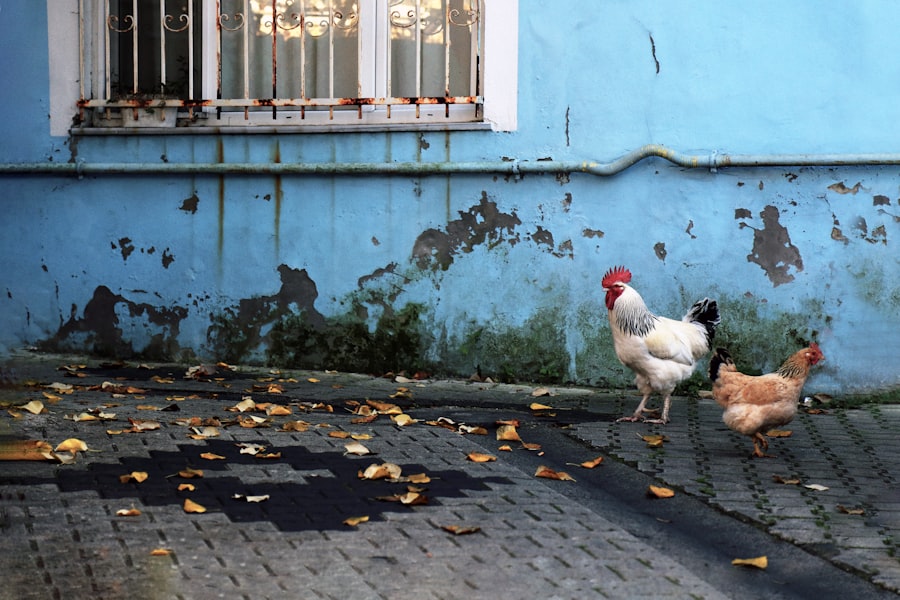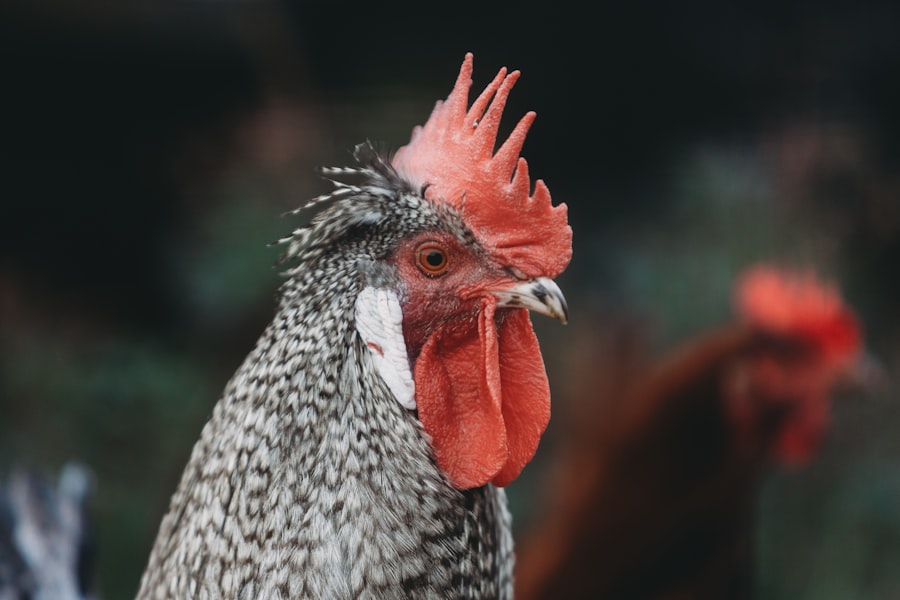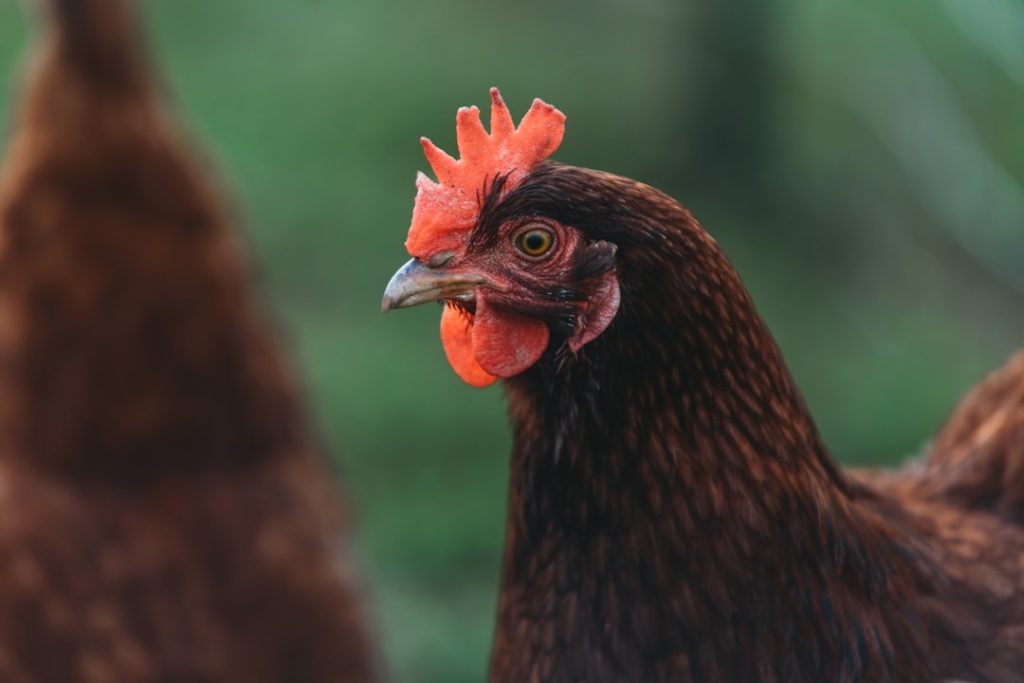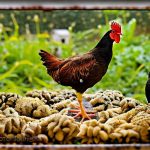Silkie chickens are a distinctive breed characterized by their fluffy plumage and docile nature. Raising Silkies in New England requires careful consideration of the region’s climate, which features four distinct seasons with cold winters and hot summers. These birds are particularly sensitive to temperature extremes, necessitating appropriate shelter and protection from the elements.
During winter, it is essential to insulate their coop and provide a heat source to maintain warmth. Proper ventilation is crucial in summer to prevent heat stress. Silkies are susceptible to frostbite due to their unique feathering, requiring close monitoring in cold weather.
Heat can also be challenging for Silkies, making it necessary to provide shaded areas and cool retreats during summer months. Constant access to fresh, clean water is vital to prevent dehydration. Understanding these climate considerations is crucial for the health and well-being of Silkies in New England.
By implementing appropriate precautions and creating a suitable environment, Silkies can successfully adapt to this region.
Table of Contents
- 1 Housing and Coop Requirements for Silkie Chickens in New England
- 2 Feeding and Nutrition Needs for Silkie Chickens in New England
- 3 Health and Wellness Tips for Silkie Chickens in New England
- 4 Predation and Protection for Silkie Chickens in New England
- 5 Breeding and Reproduction of Silkie Chickens in New England
- 6 Community and Local Regulations for Keeping Silkie Chickens in New England
- 7 FAQs
Key Takeaways
- Silkie chickens in New England require special attention to climate due to their delicate nature and susceptibility to extreme temperatures.
- Housing and coop requirements for Silkie chickens in New England should include proper insulation, ventilation, and protection from drafts to ensure their comfort and well-being.
- Silkie chickens in New England require a balanced diet of high-quality feed, fresh water, and occasional treats to meet their nutritional needs and maintain their health.
- Health and wellness tips for Silkie chickens in New England include regular health checks, parasite control, and providing a clean and safe environment to prevent common health issues.
- Predation and protection for Silkie chickens in New England is crucial, requiring secure coops, fencing, and predator-proofing measures to keep them safe from local wildlife and predators.
- Breeding and reproduction of Silkie chickens in New England should be carefully managed, considering factors such as genetics, breeding pairs, and proper care for hatching and raising chicks.
- Community and local regulations for keeping Silkie chickens in New England should be researched and followed to ensure compliance with zoning laws, permits, and neighbor relations.
Housing and Coop Requirements for Silkie Chickens in New England
Providing a Safe and Comfortable Living Space
Silkies are known for their docile nature and are often kept as pets, so providing them with a safe and comfortable living space is essential. The coop should be well-ventilated to prevent moisture buildup and allow for proper air circulation, especially during the humid summer months.
Protecting from Predators
The coop should be predator-proof, as New England is home to a variety of predators such as raccoons, foxes, and hawks. Ensuring that the coop is secure and has sturdy locks on doors and windows is crucial for protecting Silkies from potential threats.
Meeting the Needs of Silkies
Furthermore, Silkies require roosting bars or platforms to perch on at night, as well as nesting boxes for laying eggs. The coop should also have adequate space for the number of Silkies being housed, with at least 4 square feet per bird recommended.
Maintaining a Healthy Environment
It’s important to keep the coop clean and free of droppings to prevent disease and maintain a healthy environment for the Silkies. Overall, providing a well-designed and secure coop is essential for the health and safety of Silkie chickens in New England.
Feeding and Nutrition Needs for Silkie Chickens in New England

Feeding and nutrition are crucial aspects of caring for Silkie chickens in New England. Silkies have specific dietary needs that must be met to ensure their health and well-being. A balanced diet for Silkies should include a high-quality layer feed that provides essential nutrients such as protein, calcium, and vitamins.
Additionally, offering supplemental treats such as fruits, vegetables, and mealworms can provide enrichment and variety in their diet. It’s important to monitor their food intake and ensure they are not overeating or becoming overweight, as this can lead to health issues. In addition to their diet, providing access to clean water at all times is essential for Silkies.
In the winter, it’s important to prevent their water from freezing by using heated waterers or checking on them frequently. During the summer months, it’s crucial to keep their water cool and fresh to prevent dehydration. Overall, understanding the feeding and nutrition needs of Silkie chickens in New England is essential for their overall health and productivity.
Health and Wellness Tips for Silkie Chickens in New England
Maintaining the health and wellness of Silkie chickens in New England requires proactive care and attention to their specific needs. Silkies are known for their susceptibility to certain health issues, such as respiratory problems due to their unique feathering. It’s important to monitor them closely for any signs of illness or distress, such as coughing, sneezing, or lethargy.
Providing a clean and well-ventilated living environment can help prevent respiratory issues in Silkies. Regular health checks and preventative care are also important for maintaining the wellness of Silkies. This includes regular deworming, parasite control, and vaccinations as recommended by a veterinarian.
Additionally, maintaining good hygiene practices such as keeping their coop clean and providing regular dust baths can help prevent mites and other external parasites. Furthermore, providing opportunities for exercise and mental stimulation is important for the overall wellness of Silkies. Allowing them access to a secure outdoor run or free-ranging in a safe area can provide enrichment and help prevent boredom.
Overall, prioritizing the health and wellness of Silkie chickens in New England is essential for their longevity and quality of life.
Predation and Protection for Silkie Chickens in New England
Predation is a significant concern when raising Silkie chickens in New England, as the region is home to a variety of predators that pose a threat to these small and docile birds. Common predators in New England include raccoons, foxes, hawks, and even domestic dogs. It’s crucial to take proactive measures to protect Silkies from potential threats by securing their coop with sturdy locks and predator-proofing measures such as hardware cloth on windows and doors.
Additionally, providing a secure outdoor run with a covered top can allow Silkies to safely access the outdoors while being protected from aerial predators. It’s important to regularly inspect the coop and run for any signs of damage or potential entry points for predators. Implementing deterrents such as motion-activated lights or sound devices can also help deter predators from approaching the coop.
Furthermore, being vigilant and observant of potential threats is important for protecting Silkies from predation. Checking on them regularly and securing them in their coop at night can help minimize the risk of predation. Overall, taking proactive measures to protect Silkie chickens from predation in New England is essential for their safety and well-being.
Breeding and Reproduction of Silkie Chickens in New England

Breeding and reproduction are important considerations when raising Silkie chickens in New England. Silkies are known for their broody nature and make excellent mothers, often hatching and raising chicks with great care. When breeding Silkies, it’s important to provide them with a suitable nesting area that is quiet and secluded to encourage broodiness.
Additionally, understanding the genetics of Silkies is important when breeding for specific traits such as feather color or comb type. Selecting healthy breeding stock with desirable traits can help produce strong and healthy offspring. It’s also important to provide proper nutrition and care for breeding Silkies to ensure successful reproduction.
When raising chicks, providing a warm and safe environment is crucial for their survival. Broody hens can be allowed to hatch and raise chicks naturally or eggs can be placed in an incubator for hatching. It’s important to monitor the health and development of chicks closely during the early stages of life.
Overall, understanding the breeding and reproduction of Silkie chickens in New England is important for maintaining healthy breeding stock and producing strong offspring.
Community and Local Regulations for Keeping Silkie Chickens in New England
When keeping Silkie chickens in New England, it’s important to be aware of community and local regulations regarding poultry keeping. Zoning laws, homeowner association rules, and local ordinances may dictate whether or not keeping chickens is allowed in a specific area. It’s important to research and understand these regulations before acquiring Silkies to ensure compliance with local laws.
Additionally, being a considerate neighbor is important when keeping Silkies in a residential area. This includes keeping noise levels down, properly maintaining the coop and run to prevent odors or pests, and ensuring that Silkies do not become a nuisance to others in the community. Furthermore, being an advocate for responsible chicken keeping can help promote positive relationships with neighbors and local officials.
This includes educating others about the benefits of keeping chickens, proper care practices, and addressing any concerns or misconceptions about poultry keeping. Overall, understanding community and local regulations for keeping Silkie chickens in New England is essential for maintaining positive relationships with neighbors and ensuring compliance with local laws.
If you’re considering keeping silkie chickens in New England, you may also be interested in learning how many chickens you need for a family of four. This article from Poultry Wizard provides helpful information on determining the right number of chickens for your family’s egg-laying needs.
FAQs
What are Silkie chickens?
Silkie chickens are a unique breed of chicken known for their fluffy plumage, gentle nature, and distinctive black skin and bones. They are often kept as pets and are popular for their ornamental appearance.
Can you keep Silkie chickens in New England?
Yes, you can keep Silkie chickens in New England. They are well-suited to the climate of the region and can thrive in the colder temperatures with proper care and housing.
What do Silkie chickens need to thrive in New England?
Silkie chickens in New England will need a secure and insulated coop to protect them from the cold weather. They will also need access to fresh water, high-quality feed, and protection from predators.
Are Silkie chickens good for beginners in New England?
Silkie chickens can be a good choice for beginners in New England due to their gentle nature and ease of care. However, it’s important for beginners to research and understand the specific needs of Silkie chickens in the New England climate.
Do Silkie chickens require special care in New England?
Silkie chickens in New England may require some special care to ensure they stay healthy and comfortable in the colder climate. This includes providing adequate shelter, protection from drafts, and possibly supplemental heat during extreme cold spells.
Meet Walter, the feathered-friend fanatic of Florida! Nestled in the sunshine state, Walter struts through life with his feathered companions, clucking his way to happiness. With a coop that’s fancier than a five-star hotel, he’s the Don Juan of the chicken world. When he’s not teaching his hens to do the cha-cha, you’ll find him in a heated debate with his prized rooster, Sir Clucks-a-Lot. Walter’s poultry passion is no yolk; he’s the sunny-side-up guy you never knew you needed in your flock of friends!







